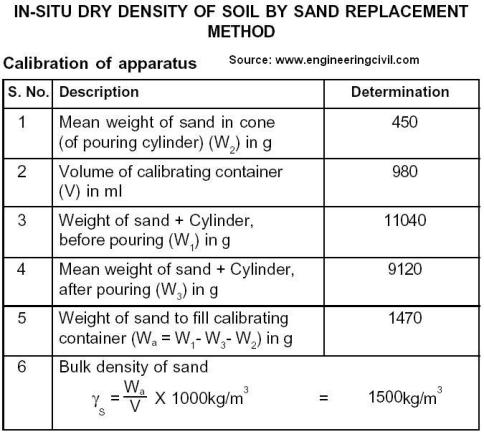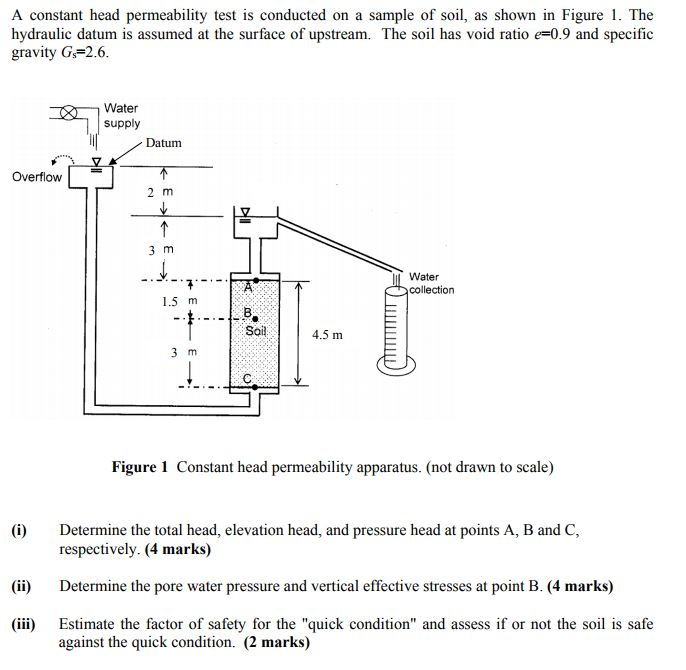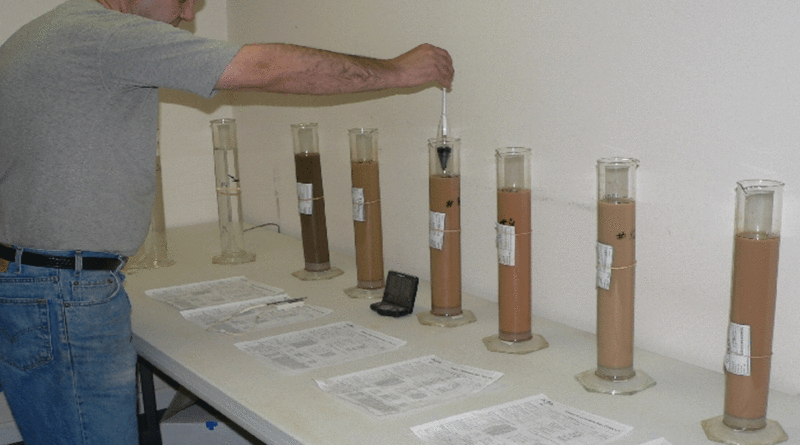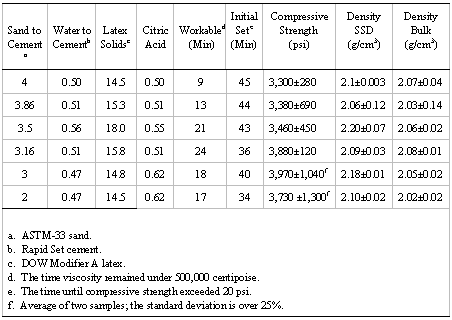Test For Specific Gravity Of Soil
Data: 1.09.2018 / Rating: 4.8 / Views: 574Gallery of Video:
Gallery of Images:
Test For Specific Gravity Of Soil
Soil Mechanics Lab (CE424L) 4CED Group 1 Music: Dissolve Noble Oak The Lounge Bensound. Specific Gravity, or relative density of materials, is an important property used in many calculations for mix design, proportioning, bulk density, absorption and. The specific gravity of soil is defined as the unit weight of the soil mass divided by the unit weight of distilled water at 4C. It is some times required to compare the. 1 These test methods cover the determination of the specific gravity of soil solids that pass the 4. 4) sieve, by means of a water pycnometer. When the soil contains particles larger than the 4. 75mm sieve, Test Method C127 shall be used for the soil solids retained on the 4. 75mm sieve and these test methods shall be used for the. Types of Soil tests for building construction works depend on properties of soil. Design of foundation is based on soil test report of construction site. Building; Specific Gravity Test on Soil. Specific gravity of soil is the ratio of the unit weight of soil solids to that of the water. Specific gravity is the ratio of the density of a substance to the density of a reference substance; equivalently, it is the ratio of the mass of a substance to the mass of a reference substance for the same given volume. For example, if the particle size of two products is the same and the specific gravity of the solids is different, the solids with the higher specific gravity will have a higher settling rate and in turn will require a larger mixer for suspension. This test is done to determine the specific gravity of finegrained soil by density bottle method as per IS: 2720 (Part IIISec 1) 1980. Specific gravity is the ratio of the weight in air of a given volume 3. 16 Calculate the specific gravity by dividing the weight of dry soil (Line 8) by the weight of displaced water (Line 13) and enter the value on Line 14. 17 Correct the specific gravity to 68 F (20 C) by multiplying the specific gravity The soil to be used in the specific gravity test may contain its natural moisture or be ovendried. The mass of the test sample on an ovendry basis shall be at least 125 g when the 500 ml flask is to be used, at least 25 g when the 100 ml flask is to be used, and at least 10 g 1. 1 These test methods cover the determination of the specific gravity of soil solids that pass the 4. 4) sieve, by means of a water pycnometer. When the soil contains particles larger than the 4. 75mm sieve, Test Method C127 shall be used for the soil solids retained on the 4. The specific gravity of the soil particles lie with in the range of 2. Soils containing organic matter and porous particles may have specific gravity values below 2. Soils having heavy substances may have values above 3. Particle density or specific gravity is a measure of the actual particles which make up the soil mass and is defined as the ratio of the mass of the particles to the mass of the water they displace. A knowledge of the particle density is essential in relation to other soil tests. In soil mechanics, the specific gravity of soil solids is an important parameter and is a factor in many equations involving weightvolume relationships. Remember that the specific gravity of soil solids refers only to the solid phase of the three phase soil system, it does not include the water and air phases present in the void space. The knowledge of specific gravity is required in calculation of soil properties like void ratio, degree of saturation and also weightvolume relationship. Definition: Specific gravity G is defined as the ratio of the unit weight ( or density ) of soil solids only to unit weight (or density ) of water. Objective For determination of specific gravity of soil solids by pycnometer method. Equipment Apparatus Pycnometer Sieve(4. 75 mm) Vacuum pump Oven Weighing balance Glass rod Preparation sample After receiving the soil sample it is dried in oven at a. The specific gravity of solid soil is often needed for various calculations. And it is defined as the ratio of the weight of a given volume of the soil to the weight of an equal volume of distilled water. The specific gravity of soil is an important weightvolume property that is helpful in classifying soils and in finding other weightvolume properties like void ratio, porosity, and unit weight. 4 The specific gravity test shall be made on the material passing 2. 0 mm sieve, when the specific gravity value is to be used for the hydrometer portion of LS702 and for the calculation of volume of solids in ASTM D2435. The specific gravity of soil solids is determined from Eq. The test is repeated and the average of two test results is reported as the specific gravity. Kerosene or white spirit may be used in place of water for soils containing soluble salts and also because they are better wetting agents. DETERMINATION OF SPECIFIC GRAVITY OF SOIL SOLIDS. volume of soil volume of water. Note: This test is applicable for soil particles smaller than 4. Range of Gs for Different Soil Types. sieve, Standard Test Methods for Specific Gravity of Soils by Water Pycnometer, Designation D and to calculate the specific gravity of aggregates coarser than the No. 75 mm) sieve, Standard Test Method for Specific Gravity and Absorption of Specific gravity or Particle Density, abbreviated as st or G s, is the weight of an individual soil particle per unit volume. Specific gravity is commonly expressed in units of grams per cubic centimeter (gcm 3 ) or tonnes per cubic meter (tm 3 ), where they are equivalent to one another (i. These test methods cover the determination of the specific gravity of soil solids that pass the 4. 4) sieve, by means of a water pycnometer. When the soil contains particles larger than the 4. 75mm sieve, Test Method C127 shall be used for the soil solids retained on the 4. 75mm sieve and these test methods shall be used for the soil. This method covers determination of the specific gravity of soils by means of a pycnometer. The specific gravity test is made on that portion of soil which passes the No. Perform this test to determine the specific gravity of solids (which will be used to assist in the hydrometeranalysis test) and to calculate the zeroairvoids curve for compaction results. Relative density, or specific gravity, is the ratio of the density (mass of a unit volume) of a substance to the density of a given reference material. Specific gravity usually means relative density with respect to water. The term relative density is often preferred in scientific usage. Specific gravity (sometimes referred to as Density) is a useful diagnostic attribute when trying to determine the mineral species of an unknown mineral specimen. But textbooks usually describe testing specific gravity using a laboratory balance scale that few of us have in our homes. introduction: in this laboratory experiment, we determined the specific gravity of soil referencing astm d 854. specific gravity of solids is the ratio of unit weightmass of solids to the unit weightmass of water (liu 33). in order to determine an accurate value for the specific gravity, mass measurements must be precise and done carefully. in order to find the specific gravity of a soil. The specific gravity of the soil particles lie with in the range of 2. Soils containing organic matter and porous particles may have specific gravity values below 2. Soils having heavy substances may have values above 3. This test method covers the determination of the specific gravity of soils that pass the 4. 75mm (# 4) sieve, by means of a pycnometer. When the soil contains particles larger than the 4. 75mm sieve, Test Method C 127 shall be used for the material retained on the 4. 75mm sieve and this test method shall be used for the material passing the 4. You are here: Home Business Center Design and Construction Project Support Materials and Geotechnical Manuals 2016 CDOT Laboratory Manual of Test Procedures 2016 CDOT Laboratory Manual of Test Procedures Colorado Procedures Laboratory CPLs 3100 Specific Gravity of Soils Standard Test Methods for Specic Gravity of Soil Solids by Water Pycnometer1 specic gravity of soil solids, Gs, nthe ratio of the mass of a unit volume of a soil solids to the mass of the same volume of gasfree distilled water at 20C. Signicance and Use The specific gravity of soil is computed with the utilization of following relation: Where M 1 mass of empty Pycnometer, M 2 mass of the Pycnometer with dry soil These test methods cover the determination of the specific gravity of soil solids passing a sieve by means of a water pycnometer. Soil solids for these test methods do not include solids which can be altered by these methods, contaminated with a substance that prohibits the use of these methods, or. EXPERIMENT 4 SPECIFIC GRAVITY DETERMINATION Standard Reference: ASTM D Standard Test for Specific Gravity of Soil Solids by Water Pycnometer. Significance: The specific gravity of a soil is used in the phase relationship of air, water, and solids in a given volume of the soil. Determination of Specific Gravity of Soil Lecture Note 2 (Thursday ) 1. Most of the errors in the results of the test are due to entrapped air, which is not removed. Add deaired, distilled water to the volumetric flask until the bottom of the meniscus What is. The specific gravity test of soil particles (Gs) is defined as the ratio of the mass of giving the volume of soil particles to the mass of an equal volume of water at 4. The specific gravity of a solid for most natural soils falls in general range of 2. Table 1 Recorded Data for Specific Gravity Test In addition to this data, the dry weight of the soil is needed to calculate the initial water content of the soil at the time of the test. This was done by by recording a weight of soil, then oven drying to remove all water and reweighing. Specific Gravity of Soil INTRODUCTION This test is used to determine the specific gravity of soil particles which in turn is used in the procedures for other tests. The specific gravity is the dry bulk density with the voids removed in reference to the unit mass of water, and for soil is typically around 2. 65 gcm3 (it is important to note it. This feature is not available right now. The soil to be used in the specific gravity test may contain its natural moisture or be ovendried. The weight of the test sample on an ovendry basis must be at least: 125 g when the 500 mL flask is to be used, 25 g when the 100 mL flask is Equipment for Specific Gravity Test of Soil. The major measuring equipment in this test is Pycnometer. This is a glass jar of 1 litre capacity that is fitted at its top by a conical cap made of brass. It has a screw type cover as shown in figure1. Pycnometer Jar of 1litre Capacity. A sample for a urine specific gravity test contains at least 1 to 2 ounces of urine. The best time to get a sample is first thing in the morning, when your urine is the most concentrated. The result of the specific gravity test is reported to the nearest two digits after decimal. Safety Precautions Soil grains whose specific gravity is to be determined should be completely dry. Urine specific gravity is a laboratory test that shows the concentration of all chemical particles in the urine. How the Test is Performed After you provide a urine sample, it is tested right away. Specific gravity is the ratio of the weight in air of a given volume of a material at a standard temperature to the weight in air of an equal volume of distilled water at the same stated temperature.
Related Images:
- Tom and jerry and the dragon
- Justin bieber boy
- Lord of the street
- Fullmetal alchemist dvd rip
- Ceccoli Oracle
- Big mike
- Dutchreleaseteam bad teacher
- Rhythm is a dancer
- Japanese Ghost Stories 01
- Ministry of sound the annual
- Twister 1996 720p
- Everywhere nowhere
- The official uk top 40 singles 2018
- Country Joe and the Fish
- Norton antivirus with activation
- Football manager 2018 reloaded crack
- Key Trial Reset Kaspersky
- Lord of the rings cz
- 3 10 yuma
- Hell on wheels s01e06
- Raymond e feist
- Discografia el ultimo ke zierre
- El Libro De Los Cerdos Pdf
- The book of mormon musical
- ESET Internet Security
- Cpu idle extreme
- Civilization 5 complete
- El show de truman
- Grimm lol s01
- 13 brrip xvid ac3
- Metodologia juridica rosalio lopez duran libro pdf
- Avi bluray 2018
- Paranormal 4 french
- Career counselling process
- Cabelas big game hunter
- 2pac still down
- Stella uk s03e07
- Cher lloyd aac
- Strokes is this it
- Lost in space season 2
- Kustom Signals Falcon Hr Handheld Radar
- Bebo yo yo honey singh
- Saint vitus lillie f 65
- The sorcer and the white snake
- A cinderella story once
- Rise of women
- Hannibal s01 e04
- Como no perder
- Public image limite
- The Good Lie
- La grandeza de vivir
- Ace of the diamond 49
- Camtasia serial keys
- Losing isaiah 1995
- Introduction to algorithms
- Faith no more
- Homestead Act Of 1862 Quizlet
- Just dance now android
- Jojo stardust 08
- The glitch mob we can make the world stop
- Troy directors cut
- Manual For Rca Universal Remote Rcrn03br
- Guia De Estudio Para Examen De Admision Unah
- Dada life happy violence
- House md critical cases game
- At Midnight 2018 10 15
- Motherboard d865perl audio driver
- Massey Ferguson Manuals Shuttle Transmission
- And then you shoot your cousin
- Antares
- Geil mit 18
- Comic movie ita
- Devil may cry 4
- Pokemon for gba emulator
- Beyonce if i a boy
- Call of the duty World at war
- Dragon age dawn of the
- Wolves 2018 rarbg
- Taylor swift fearless
- Him and her












